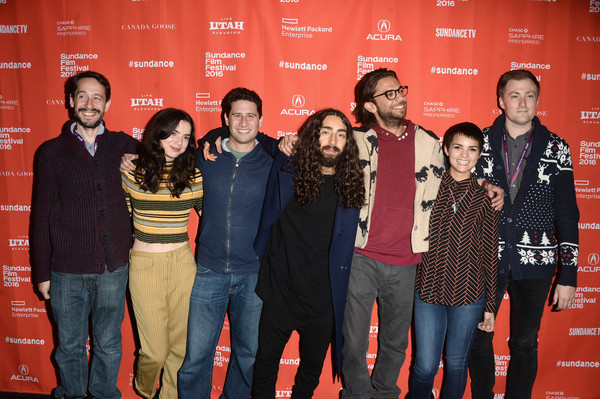REVIEW: A Perfectly Imperfect Coming-Of-Age
By Adrik Kemp
At the end of the 90s, Willow Rosenberg came out. With rapt attention, I watched her relationship with Tara blossom, the unspeakable happen and then a new relationship with Kennedy take its first steps. In the mid-00s, The L Word premiered and for six glorious years, I was rapt with the adventures of Bette and Tina and the gang. At the start of the 10s, Lost Girl began and I went on a wild ride with Bo, Kenzi and of course, Dr Lauren. Now, I’m invested deeply in The 100, Sense8, OITNB and most recently, Wentworth. There are many other shows out there and on my radar, but my point is that since I was a teenager, I have been a proud, card-carrying lesbro.
And so, with this certification, I saw First Girl I Loved. There is a subset of queer cinema known as ‘coming-of-age’. And within this, the vast majority revolve around impossibly handsome young men ‘finding themselves’ with a hot jock, a best friend, an older man, the list goes on. It’s not to say that other films don’t exist that are more realistic and less a fantasy of missed opportunities, but they are few and far between. First Girl I Loved is one of them.
Anne is a quintessential teen. She skips school, steals and drinks alcohol. She hangs out with her best friend Clifton and has a bad relationship with her mother. And she has a crush on Sasha, a more popular girl at school. To say I identified with Anne would be an understatement. I was her. I have been her. Making poor decisions, falling in love with a seemingly unattainable person and having friendships fall apart. The devastation and euphoria of being a teen. She is angst, but she is also real. Anne is the shared experience of being a teenager first and foremost and being gay second.
In fact, if you look at any of the characters, from Sasha (played with cute, confused, awkward perfection by Brianna Hildebrand) to Clifton and even their parents and guardians, none rely on tropes or stereotypes. And when these individuals come together, it is at times messy, awkward, beautiful or a mixture depending on what sparks fly where. It’s difficult to figure out who is wrong and who is right, who is good and who is evil, because none are fully either of these things. Everyone has a little of everything, which is what makes it so compelling.
Even with the fascinating and subtle characterisation, it’s sounding similar to the coming-of-age films I described earlier, but this film differs. It follows some of the same beats, but veers midway through and becomes a much more thought-provoking exploration of what it means to be a gay teenager and the messy consequences of serious misunderstandings and reactionary decisions.
This film deals with issues of consent. I did not know this going in and in some ways I wish I had, so I am dealing with it here. The consent issues it portrays is in some of the muddiest water I have seen, testament I suppose to the characters, but this lack of clarity illustrates the importance of communication. And perhaps this is the underlying message. Anne, Sasha and the rest of the characters communicate via speech and text, in different languages, affectations and in-jokes as well as physically, under the influence, with euphemisms and code. And this understanding and need to be proficient in so many modes of communication mean that they think they know each other. It means they assume based on hundreds of other signals, that they know what the other is thinking, and tragically, it is not always the case.
It is a beautiful film, with heartrending scenes of first love, clandestine kisses and laughter made all the more poignant by parallels of betrayal, confusion and self-doubt. Dylan Gelula carries the film as Anne and is a striking, compelling lead. Her journey, galvanised by her experiences, is on a well-trodden path but one worth traversing again, especially with her at your side.
First Girl I Loved is showing at Queer Screen Film Fest 2016. It’s a lovely, funny, eye-opening recollection that I highly recommend seeing.
And although Brianna Hildebrand’s wig could have been better, it was worth it for her to appear in Deadpool.

